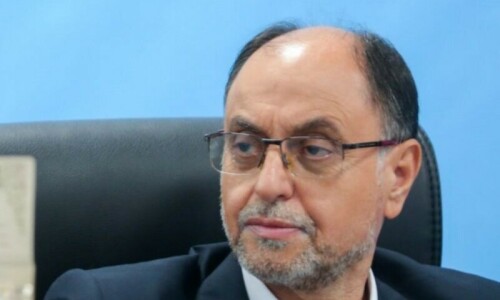PESHAWAR: Caught between a rock and a hard place is how officials describe the predicament of the federal government which is looking at the problem faced by the presence of millions of registered and unregistered Afghan refugees with apprehensions about the role India could play in the event of Pakistan taking steps which may displease Kabul.
Repatriation of the refugees to Afghanistan at the expiry of the umpteenth-time extended deadline, government officials warn, may annoy Kabul and push it back into the Indian fold.
Also read: Not every Afghan living in Pakistan is a refugee, says UNHCR
Everyone at a Jan 6 meeting on the issue was clueless, an official who attended the recent huddle in Islamabad, told Dawn.
“Everyone agreed that the continued presence of Afghans poses a grave national security challenges, but how to deal with the issue, no-one seems to have any answer,” said the official.
The meeting presided over by the secretary of state and frontier regions had been called to discuss the issue of unregistered Afghan nationals and also of the registered refugees. It was attended by the federal secretaries of defence, interior and foreign affairs, chief secretaries and home secretaries of the four provinces, chief commissioner refugees and senior officials of intelligence agencies.
According to sources, the government is likely to conduct a “temporary” registration of undocumented Afghans before sending them back to their country and a summary for the purpose was awaiting Prime Minister Nawaz Sharif’s approval.
It has been proposed that the task of registration be given to the National Database and Registration Authority (Nadra).
The United Nations High Commissioner for Refugees (UNHCR) will not be involved in the process which will be funded by the federal government. The temporary registration will be for a period of four or six months.
“Temporary registration means that Pakistan will cope with another influx of refugees and repatriation of unregistered Afghans may take two to three years,” the official said, adding that the government would be responsible for providing shelter, food, security and health facilities to the unregistered Afghans.
According to the sources, the federal government is in a fix over the issue of registered and unregistered Afghans. At the meeting some senior functionaries expressed apprehensions that a tough decision might annoy Kabul at a time when both sides wanted to improve relations and that India could take advantage of the situation.
“Kabul may not cooperate with Islamabad on the issue of acting against outlawed Tehreek-i-Taliban Pakistan chief Mullah Fazlullah and other wanted persons if Pakistan presses for immediate expulsion of the refugees.”
Pakistan has been asking Afghanistan to hand over Fazlullah whose group has been accused of being involved in terrorist attacks in Pakistan, including the Peshawar Army Public School massacre.
Police and other agencies have been blaming the Afghans for the deteriorating law and order situation. Pakistan is currently hosting 1.6 million Afghan refugees who have been issued Proof of Registration (PoR) cards.
The government has no accurate data about undocumented Afghans, but officials put the number between two and three million. The PoR card will expire by the end of December.
Repatriation of registered refugees is in progress with the help of UNHCR. The process has been very slow and last year only 16,000 refugees could be repatriated.
The sources said the provinces had been opposing a further extension in the deadline for repatriation. During the meeting, the Khyber Pakhtunkhwa government suggested that registered refugees living in urban areas be shifted to their camps. The province is currently hosting about 900,000 of the 1.6 million registered Afghans.
Data compiled by the agencies concerned show that 67 per cent of the total documented Afghans are living in cities and towns and 37pc in camps. The number of designated camps in KP is 29 and in some areas, including Peshawar, Afghans have set up undesignated camps.
An official dealing with the issue said that setting up new camps and shifting refugees from urban areas to camps would be an expensive exercise requiring billions of rupees.
“An average camp for 50,000 refugees requires a 1,300-kanal area and up to Rs60 million for shelter and other basic facilities,” he said, adding that in the present circumstances Afghan refugees were expected to stay in Pakistan for the next three years.
Published in Dawn January 14th , 2015
On a mobile phone? Get the Dawn Mobile App: Apple Store | Google Play












































